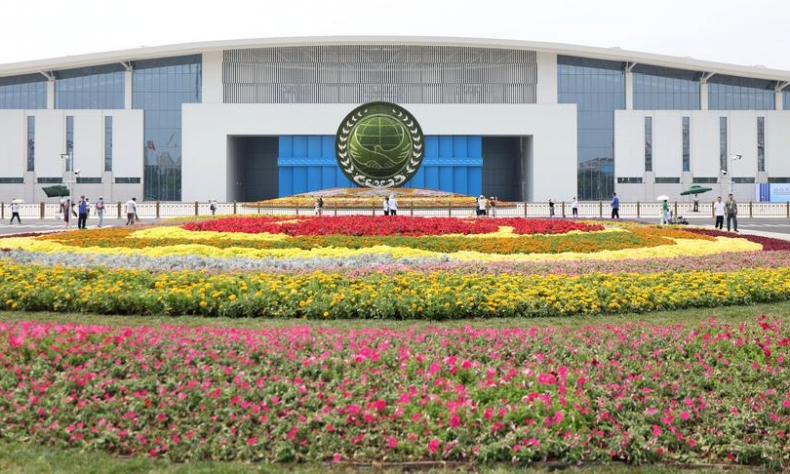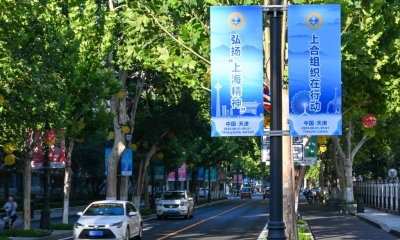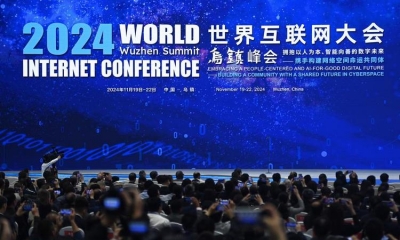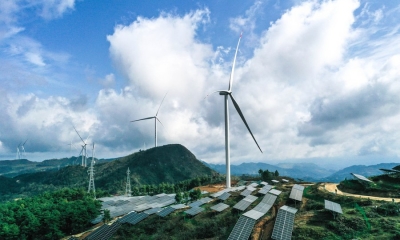The GGI Blueprint for a More Equitable World

The launch of the GGI at the SCO plus summit reflects China’s growing confidence as both a major economy and a member of the Global South.
When President Xi Jinping together with leaders attended the Shanghai Cooperation Organization Plus meeting in Tianjin on September 1, he proposed a bold vision: the Global Governance Initiative (GGI). Framed as China’s latest public good to the world, the proposal lays out a roadmap for reforming international institutions to meet the needs of a changing era.
“I look forward to working with all countries for a more just and equitable global governance system and advancing toward a community with a shared future for humanity,” Xi said.
The GGI is neither a standalone statement nor a rhetorical flourish. It is the culmination of decades of Chinese engagement with multilateralism and an extension of initiatives such as the Global Development Initiative, Global Security Initiative, and Global Civilization Initiative. President Xi’s proposal resonates at a time when calls for reform are echoing loudly across the Global South, where frustration with inequality and governance mechanisms reform is at a tipping point.
Global governance, as it exists today, was shaped in the aftermath of the Second World War. The creation of the United Nations and associated institutions reflected the post-war consensus, but they were never designed for today’s multipolar world. Since the end of the Cold War, emerging economies have become drivers of global growth: according to the International Monetary Fund, they now account for approximately 60 percent of global GDP in PPP term, growing at an average of over 3 percent annually. Yet their influence within key decision-making bodies—such as the IMF, the World Bank, and the World Trade Organization—remains limited.
This mismatch between economic weight and political voice has eroded trust. The post-war order has struggled to keep pace with rapid technological change, demographic shifts, and new threats like climate change and cyber insecurity. The dominance of a handful of wealthy nations, often pursuing unilateral policies, has made the system appear unrepresentative, especially to countries that were once colonized and now demand a genuine say in shaping the rules. Xi’s GGI seeks to bridge this gap, offering a vision anchored in five core principles: sovereign equality, adherence to international law, multilateralism, a people-centered approach, and real action. Together, they outline a roadmap to move from a system of power politics to one of shared responsibility.
At the heart of Xi’s proposal is a recognition of the realities of inequality. A recent UN report highlighted that two-thirds of the world’s population live in countries where income inequality is widening, while over a third subsist on less than $6.85 a day. The digital divide is stark: while high-income countries boast over 90 percent internet access, low-income countries lag at just 27 percent, hampering their ability to benefit from artificial intelligence and other technological shifts. For developing economies, the pace of globalization has been uneven. Export-oriented growth strategies that lifted millions out of poverty in the late 20th century are increasingly challenged by AI-driven automation, which demands capital-intensive investment rather than abundant labor. Left unaddressed, these inequalities risk aggravating divisions between North and South.

Xi’s initiative builds on China’s longstanding advocacy for a fairer global order. From supporting IMF reforms to backing the African Union’s entry into the G20, Beijing has consistently pushed for greater representation of developing nations. In trade, China has opened its markets to the world’s poorest countries, granting zero-tariff treatment to all African least developed countries with which it has diplomatic relations. These measures reflect China’s belief that equality in governance must start with economic opportunity.
The GGI gains credibility from China’s track record in international engagement. As the second-largest financial contributor to both the UN and UN peacekeeping operations, China has shouldered responsibilities that match its economic stature. Beijing has also played a key role in mediating conflicts, including facilitating the landmark rapprochement between Iran and Saudi Arabia and collaborating with Brazil on proposals for a political settlement in Ukraine.
China has invested heavily in new multilateral institutions designed to complement, rather than replace, existing ones. The Asian Infrastructure Investment Bank and the New Development Bank provide financing options that reflect the priorities of the Global South, focusing on infrastructure, green development, and digital inclusion. These initiatives demonstrate Beijing’s belief in “extensive consultation, joint contribution, and shared benefits,” a philosophy now codified in the GGI.
The GGI’s most compelling feature is its emphasis on actionable reform rather than rhetoric. It calls for halting practices that undermine multilateralism, such as paralyzing the WTO or disregarding the UN Charter. It advocates rebalancing quotas and voting power at institutions like the IMF and World Bank, ensuring they reflect today’s global economic landscape. These changes, Xi argues, are not optional but essential for stability.
The initiative also aligns with China’s advocacy for a rules-based order that is not defined by hegemony. While Western policymakers often equate “rules-based” with their own preferences, Beijing emphasizes a return to universally agreed-upon norms under the UN framework. This distinction speaks to a deeper philosophical difference: rather than imposing a single model of development, China stresses the right of each country to pursue its own path based on history, culture, and national conditions.
Global governance reform is not merely about representation; it is also about capacity. The challenges of our age—pandemics, climate change, migration, cybersecurity, and AI regulation—are too complex for unilateral approaches. Xi’s GGI underscores this interdependence, emphasizing a “people-centered” approach that prioritizes development and security for all. China’s contributions to renewable energy, poverty alleviation, and digital connectivity illustrate how solutions can be scaled globally. For example, China has pledged significant climate finance to support developing nations and is expanding digital infrastructure in underserved regions through initiatives like the Digital Silk Road. By tying these actions to multilateral cooperation, Beijing seeks to demonstrate that governance reform is not abstract diplomacy but a pathway to solving shared problems.
The launch of the GGI at the SCO plus summit reflects China’s growing confidence as both a major economy and a member of the Global South. Rather than replacing the existing order, the initiative aims to rebalance and revitalize it. Its principles echo the vision of a “community with a shared future for humanity,” a concept that underpins Beijing’s foreign policy and finds resonance among countries that have long felt marginalized. Critics may view the initiative as a bid for influence, but it can also be read as a pragmatic recognition of changing realities: a multipolar world needs multilateral institutions that reflect its diversity, instead of a fragmented system prone to mistrust, trade wars, and unilateral interventions.
The article reflects the author’s opinions, and not necessarily the views of China Focus.
 Facebook
Facebook
 Twitter
Twitter
 Linkedin
Linkedin
 Google +
Google +







